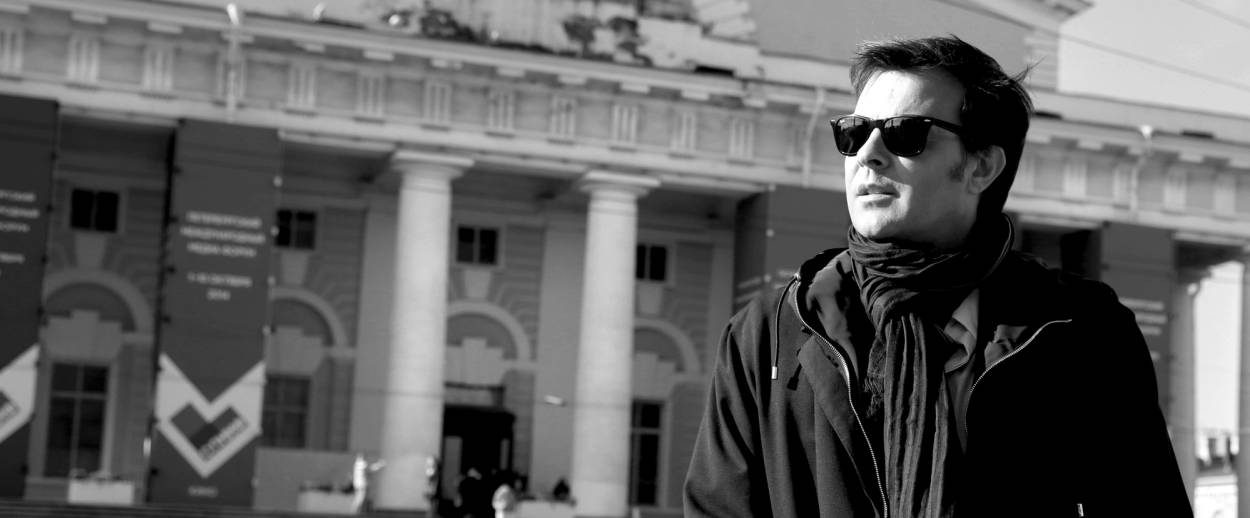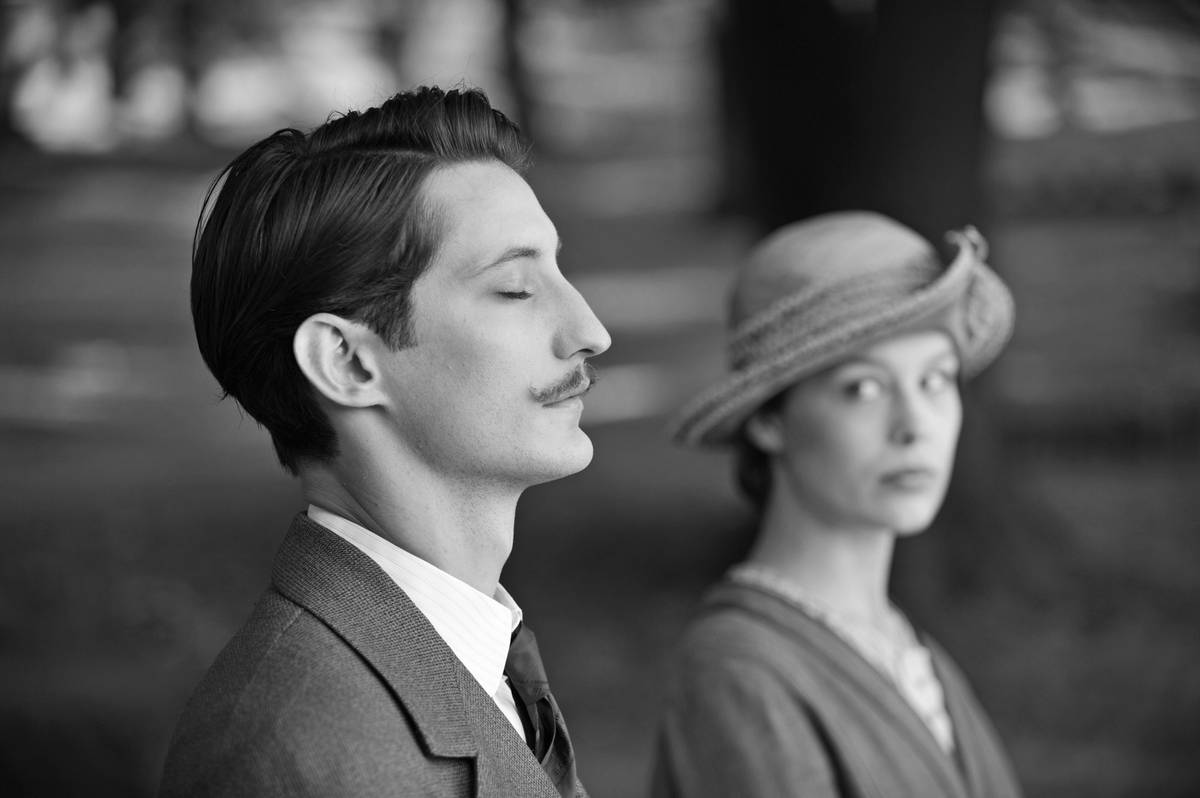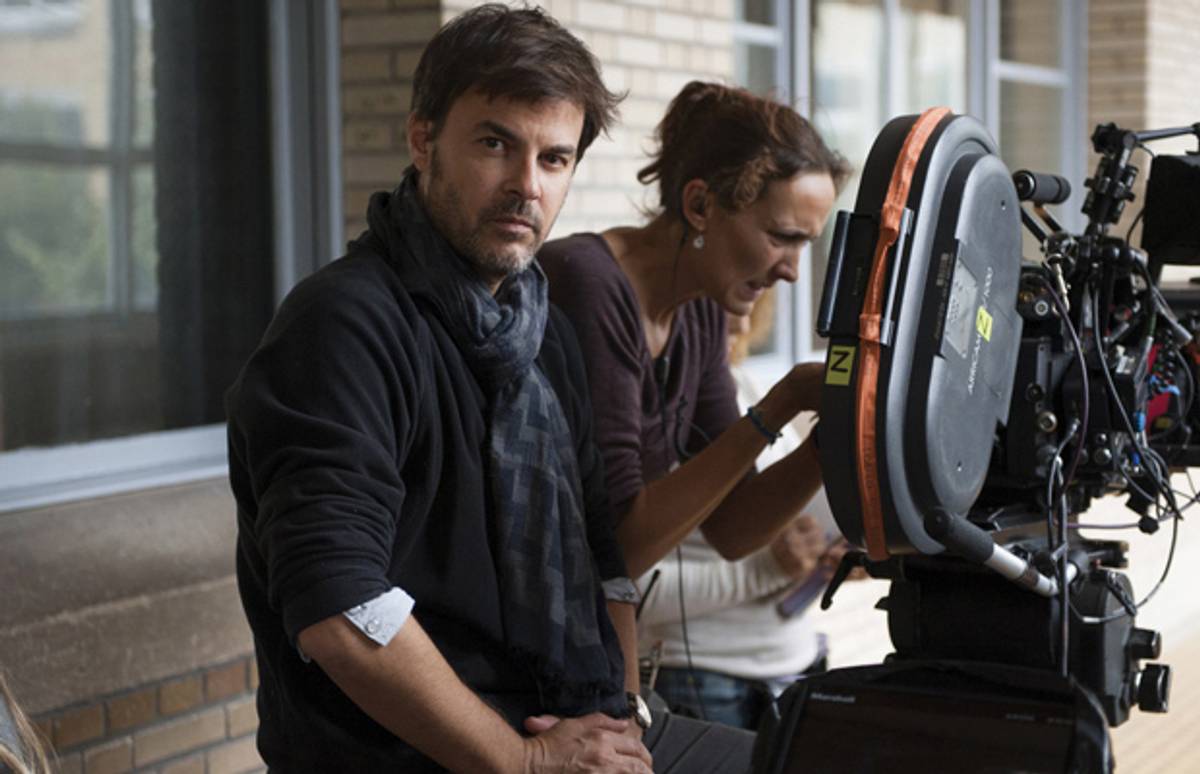Q&A: François Ozon
The award-winning French filmmaker on his new World War I drama ‘Frantz’




Love, anger, regret, and survivor’s guilt fuel writer/director filmmaker François Ozon’s heart-wrenching film Frantz. Nominated for 11 César Awards, the film is set in Germany and France immediately following World War I. It stars German actress Paula Beer as 21-year-old Anna and Pierre Niney as French war veteran Adrien, who mysteriously appears in a German village cemetery to place a floral bouquet on Anna’s fallen fiancé’s grave. I recently caught up with Ozon, whose The Swimming Pool and 8 femmes I had also seen, for a chat about Frantz.
Masha Leon: Were you influenced by director Ernst Lubitsch’s 1931 film Broken Lullaby, which was based on the Maurice Rostand play? (Lubitsch, a Berlin-born Ashkenazi Jew, is famous for 1939’s Ninotchka Greta Garbo.)

François Ozon: My first inspiration [for Frantz] was the Rostand play. I loved the plot about a young French soldier [Adrien, played by French actor Pierre Niney] who goes to Germany and puts flowers on the grave of a German soldier… It was touching and surprising. So I began to make a loose adaptation of the play, then realized that Lubitsch had made an adaptation of the film in the ’30. So I was depressed because—how can I make a film after Lubitsch? He’s a master! So I found Broken Lullaby, a big flop at that time. I was surprised because it was of course a beautiful film, but made during the ‘30s. Lubitsch didn’t know that the Second World War would happen, so his perspective was totally different. My idea is from the point of view of the German girl Anna [portrayed by Paula Beer], a loser in the war. It will be like an answer 80 years after Lubitsch’s film, made by a French director from the point of view of the German.
ML: Unlike WWI-related films like Paths of Glory, Grand Illusion, and All Quiet on the Western Front, your film delves intimately into individual lives of the ordinary French and Germans. What was the reaction like in France, Germany?
Ozon: Very good in France, but especially good in Germany because the Germans are not used to seeing nice German characters in French movies. They [have historically been portrayed] as the bad guys, always the Nazis. They were very surprised that a French director would tell the story from their point of view and were touched by the depiction of the German village trying to survive.

ML: Apropos to WWI Germans: Following my escape with my mother in 1940 from Nazi-occupied Warsaw, we finally reached her birth town of Byten in what is now Belarus, but was then under Soviet rule. She pleaded with her extended family to leave, to go east where we were headed because the Germans would be coming. They would not listen. They felt safe because they remembered that during the German occupation of the town during WWI, the German soldiers were polite, did not rape, brought sanitation. They didn’t leave and all perished because they could not grasp that the Germans of 1941 were unlike the Germans of 1914.
Ozon: My great-grandfather died in World War I. So many dead, two million French soldiers. My grandfather died in World War II. It’s important to understand the past.
ML: You shot Frantz in black and white. Why?
Ozon: Because it would be more realistic. Our memory like so many documents of the First World War makes us feel people were living in black and white.
ML: What is most unsettling is Anna’s post-war visit to Paris thinking she had finally resolved her antipathy for the French, but it’s where she suffers an emotional betrayal.
Ozon: Yes. A dissolution. Anna was thinking of Prince Charming: Does Prince Charming exist? But the reality is she grew up and is able to turn the page.
ML: Is the message of this film anti-war, pacifism?
Ozon: I am not doing propaganda; [Frantz isn’t] about messages but about questions. It was important for me to use German and French in the film to show that characters can come together because of their love of culture.
Frantz opens in the U.S. this month.
Masha Leon is an award-winning journalist and longtime cultural columnist for The Forward and other publications. She has won Poland’s Knight Cross of Merit Medal for articles relating to Polish-Jewish affairs, and is a frequent speaker on her history as a Sugihara survivor.